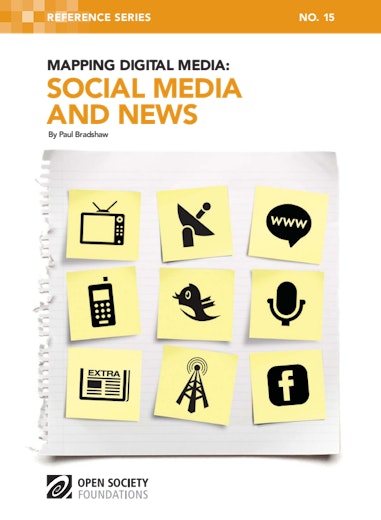The Mapping Digital Media project examines the global opportunities and risks created by the transition from traditional to digital media. Covering 60 countries, the project examines how these changes affect the core democratic service that any media system should provide: news about political, economic, and social affairs.
The incredible growth of social media has dominated the Web 2.0 decade. With research showing that most internet users stumble across news online while looking for something else, news organizations can no more ignore social media than they can ignore the communities they seek to serve (and the markets which its advertisers seek to reach).
News organizations are being sidestepped by newsmakers that use social media to communicate directly with audiences; news products are being unbundled across multiple platforms; and production processes are becoming more networked. New devices—mobile and tablets—are shifting consumption further into public and private work and leisure spaces, and there is still an enormous amount of innovation to come. Yet social media have not (yet) replaced other media. Television remains the most consumed and trusted news medium.
In this paper, Paul Bradshaw surveys the ways that news occurs in social media, and examines the implications for media-related values. It will, he concludes, become more important than ever to identify what exactly the role of journalists—and the news they report—should be, regardless of platform. Is it to hold power to account, give a voice to the voiceless and a platform for national, international, and local conversations? Or separate rumour from truth, or create well-informed citizens? New technologies provide new dangers along with new possibilities, and it will take governments, media and citizens some time to address them.
Download
-
Mapping Digital Media: Social Media and News (198.49 Kb pdf file)
Download the complete 21-page report.
